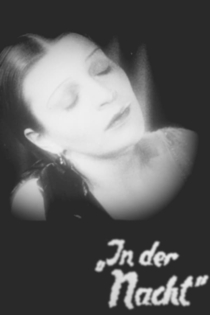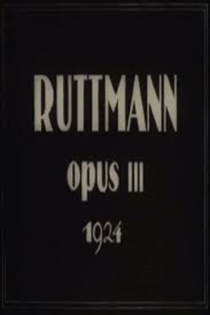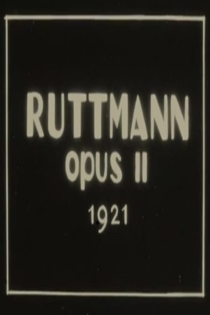
Walter Ruttmann
1887 - 1941Ruttmann was a prominent exponent of both avant-garde art and music. His early abstractions played at the 1929 Baden-Baden Festival to international acclaim despite their being almost eight years old. Ruttmann licensed a Wax Slicing machine from Oskar Fischinger to create special effects for Lotte Reiniger. Together with Erwin Piscator, he worked on the film Melody of the World (1929), though he is best remembered for Berlin: Die Sinfonie der Großstadt (Berlin: Symphony of a Great City, 1927).
During the Nazi period he worked as an assistant to director Leni Riefenstahl on Triumph of the Will (1935). He died in Berlin of wounds sustained when he was working on the front line as a war photographer.
Berlin: Die Sinfonie der Großstadt
Walter Ruttmann
Paul von Hindenburg
A train speeds through the country on its way to Berlin, then gradually slows down as it pulls into the station. It is very early in the morning, about 5:00 AM, and the great city is mostly quiet. But before long there are some signs of activity, and a few early risers are to be seen on the streets. Soon the new day is well underway. It's just a typical day in Berlin, but a day full of life and energy.
Berlin: Symphony of a Great City
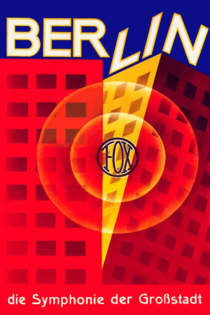
Melodie der Welt
Walter Ruttmann
Ivan Koval-Samborsky, Renée Stobrawa
An impression of the state of the world in 1929, contrasting similarities and differences in religion, customs, art and entertainment from all over the world. The film is constructed like a symphony.
Melody of the World
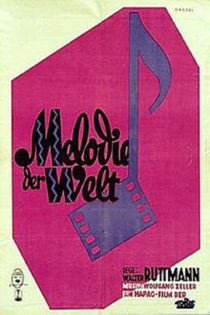
Lichtspiel: Opus I
Walter Ruttmann
Against a dark background, several bright, curved or rounded shapes pulse towards the center of the screen, one at a time. They are followed by many other shapes, some irregular, some pointed, others rounded. The abstract shapes move into or across the screen in harmony with the musical score.
Lichtspiel: Opus I
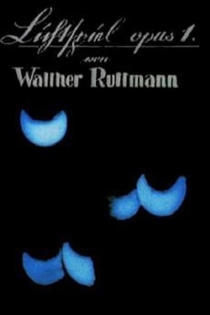
Acciaio
Walter Ruttmann
Piero Pastore, Isa Pola
In the huge steel factories in Terni (Umbria, Italy), two friends: Mario and Pietro, fight for the love of the same girl, Gina. Pietro dies because of a work accident at the factory. The other workers think Mario is responsible for the death of his friend. Mario, who is innocent, is forced to quit, but his love for Gina and his dedication to his job help him out of his crisis.
Steel
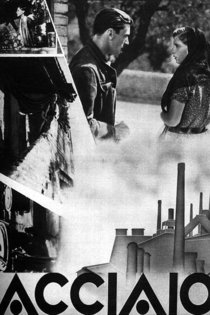
Weekend
Walter Ruttmann
Wochende (Weekend) is a film initially commissioned by the Berlin Radio Hour. Prior to Weekend, Ruttmann had made numerous celebrated avant-garde films, namely Opus I-IV, and the spectacular Berlin: Symphony of a City (1927). The advent of sound films dawned, and, interested in how spectators perceive sound, he premiered a film without pictures. On June 13th, 1930, the audience took their seats, the lights went down, and the sound of the film was heard. But the screen was completely blank.
Weekend

